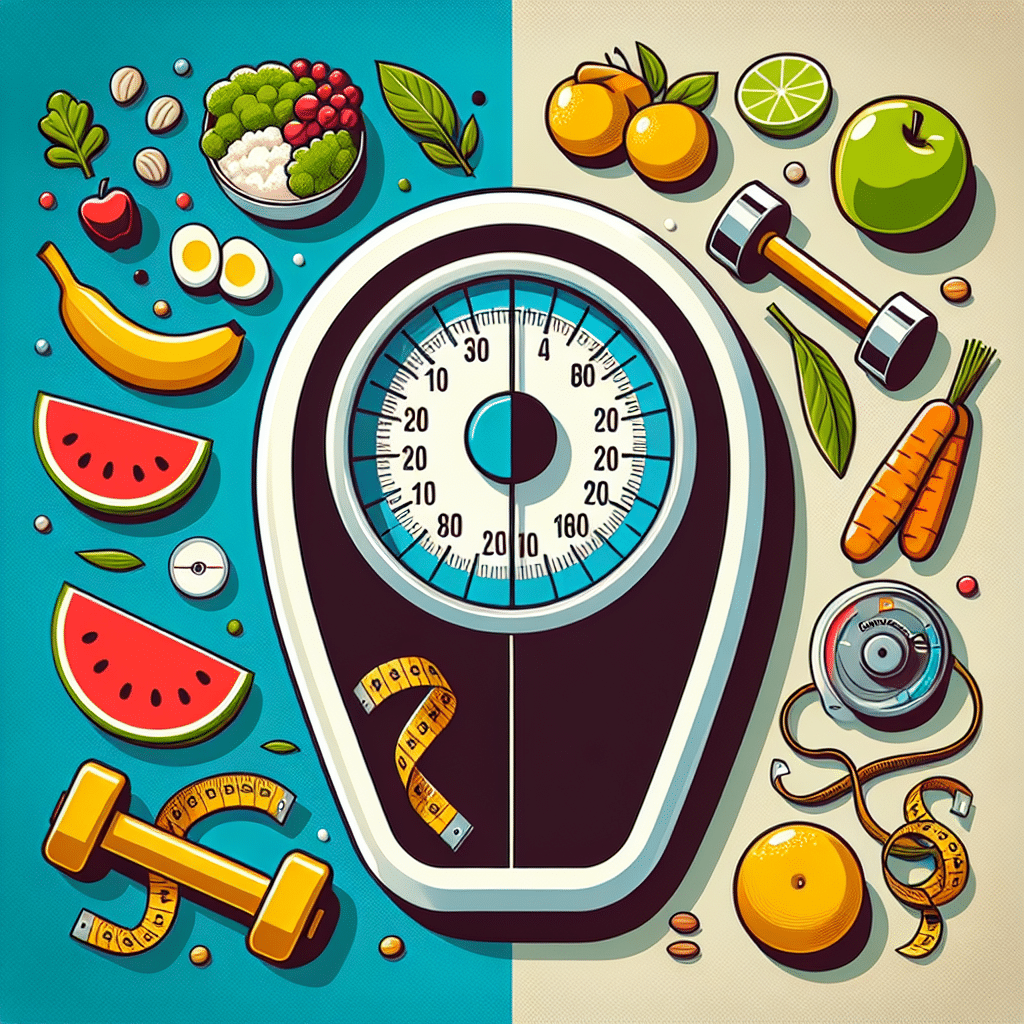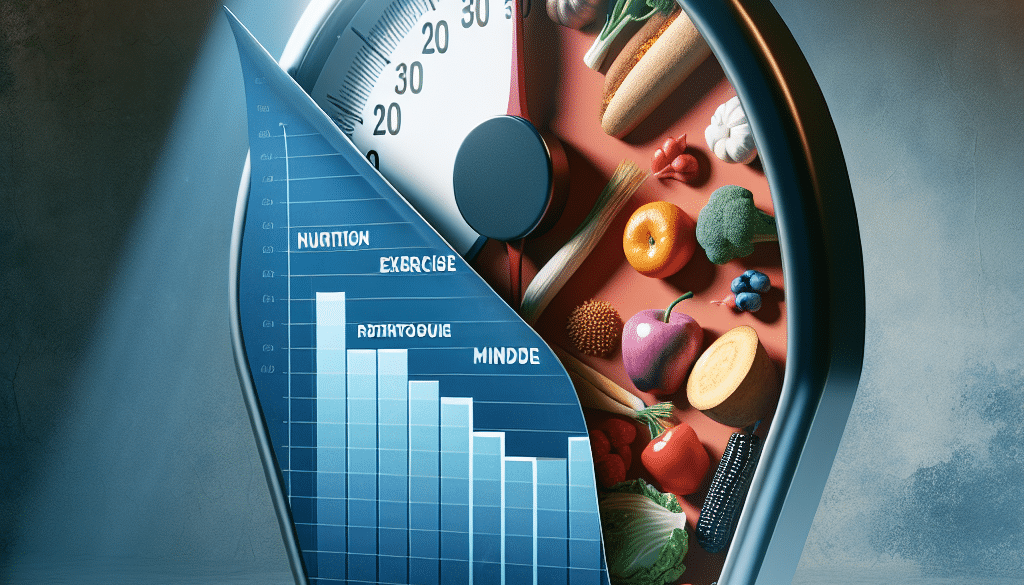Your Scale isn’t Telling the Whole Story When it Comes to Weight Loss
-
Table of Contents
- Weight Loss Beyond the Scale: Understanding the Full Picture
- The Limitations of the Scale
- Body Composition: Fat vs. Muscle
- Non-Scale Victories (NSVs)
- Water Weight Fluctuations
- Case Studies and Statistics
- Tools for a Better Assessment
- Conclusion: The Bigger Picture of Weight Loss
- Enhance Your Weight Loss Journey with ETChem’s Protein Products
Weight Loss Beyond the Scale: Understanding the Full Picture

When embarking on a weight loss journey, the scale is often seen as the ultimate judge of success. However, this single number can be misleading and doesn’t provide a comprehensive view of one’s health or the progress they’ve made. This article will delve into why the scale isn’t the be-all and end-all of weight loss and what other factors you should consider to get the full story.
The Limitations of the Scale
While weight is a measurable and easy-to-track metric, it doesn’t differentiate between muscle, fat, water, and bone mass. This means that even if you’re losing fat but gaining muscle, the scale might not budge, or it could even go up. Muscle is denser than fat, so it takes up less space in the body, leading to a slimmer appearance without a significant change in weight.
Body Composition: Fat vs. Muscle
Understanding body composition is crucial when evaluating weight loss. A person who weighs more due to muscle mass can look and feel very different from someone with the same weight and a higher body fat percentage. Here are some reasons why body composition matters:
- Metabolic Health: Muscle tissue burns more calories at rest compared to fat, which can increase your basal metabolic rate (BMR).
- Physical Strength: More muscle mass generally means greater strength and endurance, improving overall fitness.
- Disease Risk: Higher levels of body fat, especially around the abdomen, are associated with increased risks of heart disease, diabetes, and certain cancers.
Non-Scale Victories (NSVs)
Non-scale victories are achievements that aren’t reflected on the scale but indicate progress in your health and fitness journey. These can include:
- Improved energy levels
- Better fitting clothes
- Increased physical strength
- Enhanced mood and mental health
- Lower blood pressure and improved biomarkers
These victories are often more telling than the number on the scale and can provide motivation to continue with healthy habits.
Water Weight Fluctuations
Water weight can significantly affect scale readings. Factors such as salt intake, carbohydrate consumption, hormonal changes, and hydration status can lead to temporary weight fluctuations that have nothing to do with fat loss or gain.
Case Studies and Statistics
Research has shown that individuals who focus on body composition changes rather than just weight loss tend to maintain healthier habits and achieve better long-term results. For example, a study published in the “Journal of Obesity” found that participants who used body composition as a measure of progress were more successful in maintaining weight loss after one year compared to those who relied solely on the scale.
Tools for a Better Assessment
To get a more accurate picture of your health and progress, consider using the following tools and methods:
- Body Mass Index (BMI): While not perfect, BMI can provide a quick assessment of weight relative to height.
- Body Fat Percentage: Tools like skinfold calipers or body fat scales can estimate the percentage of fat in your body.
- Circumference Measurements: Measuring waist, hips, and other areas can show changes in body shape.
- Dual-Energy X-ray Absorptiometry (DEXA): This medical scan is one of the most accurate ways to measure body composition.
- Performance Metrics: Tracking improvements in exercise, such as running speed or lifting weights, can indicate progress.
Conclusion: The Bigger Picture of Weight Loss
Weight loss is a multifaceted process, and the scale is just one tool that offers limited information. By understanding the importance of body composition, celebrating non-scale victories, and using various assessment tools, you can gain a more comprehensive view of your health and progress. Remember, the ultimate goal is to achieve a healthy and sustainable lifestyle, not just a lower number on the scale.
Enhance Your Weight Loss Journey with ETChem’s Protein Products
Protein plays a vital role in weight management by promoting satiety, preserving muscle mass, and aiding in recovery after exercise. ETChem’s high-quality protein products can be an excellent addition to your diet as you work towards your weight loss goals. Their range of collagen products, including marine, fish, bovine, and chicken collagen, provides versatile options to suit your preferences and dietary needs.
About ETChem:
ETChem, a reputable Chinese Collagen factory manufacturer and supplier, is renowned for producing, stocking, exporting, and delivering the highest quality collagens. They include marine collagen, fish collagen, bovine collagen, chicken collagen, type I collagen, type II collagen and type III collagen etc. Their offerings, characterized by a neutral taste, instant solubility attributes, cater to a diverse range of industries. They serve nutraceutical, pharmaceutical, cosmeceutical, veterinary, as well as food and beverage finished product distributors, traders, and manufacturers across Europe, USA, Canada, Australia, Thailand, Japan, Korea, Brazil, and Chile, among others.
ETChem specialization includes exporting and delivering tailor-made collagen powder and finished collagen nutritional supplements. Their extensive product range covers sectors like Food and Beverage, Sports Nutrition, Weight Management, Dietary Supplements, Health and Wellness Products, ensuring comprehensive solutions to meet all your protein needs.
As a trusted company by leading global food and beverage brands and Fortune 500 companies, ETChem reinforces China’s reputation in the global arena. For more information or to sample their products, please contact them and email karen(at)et-chem.com today.




